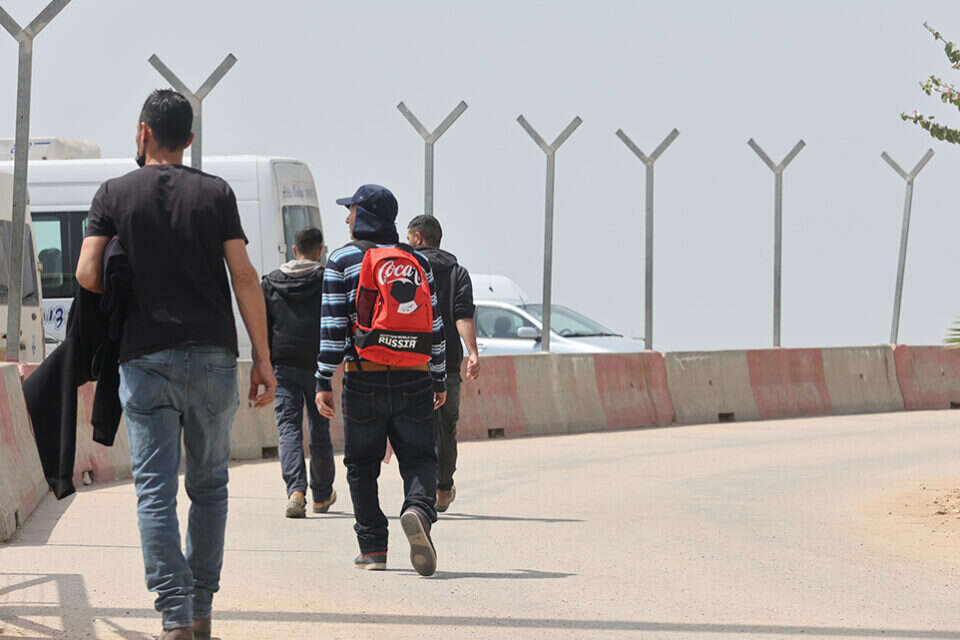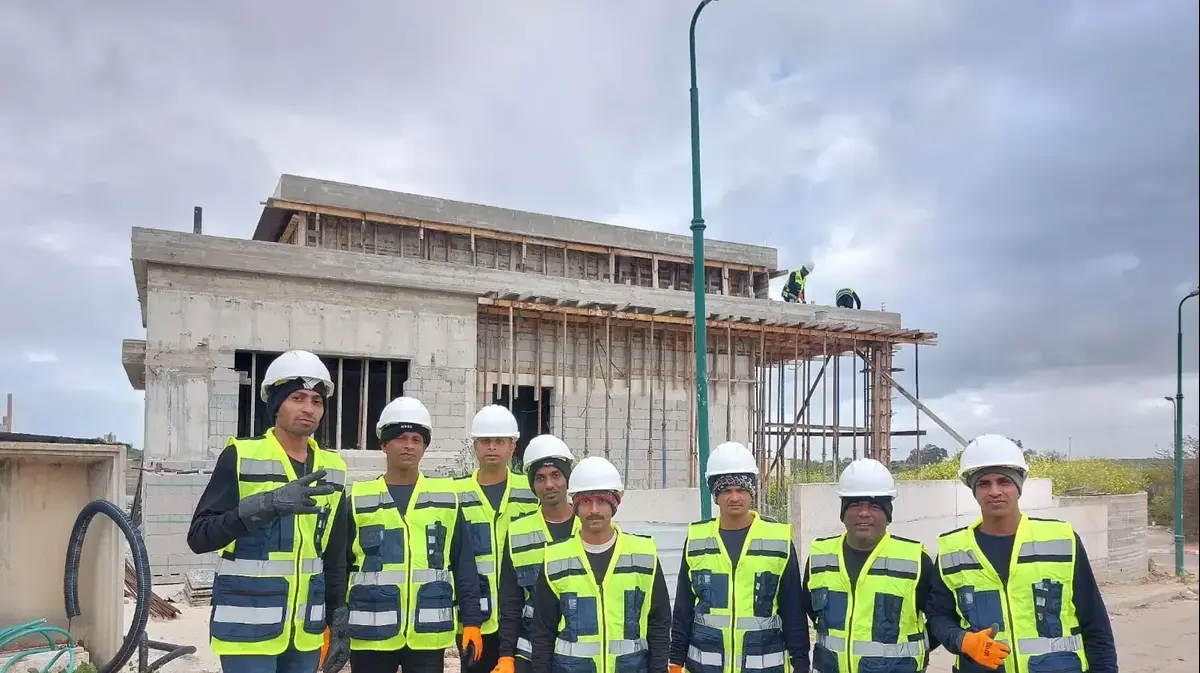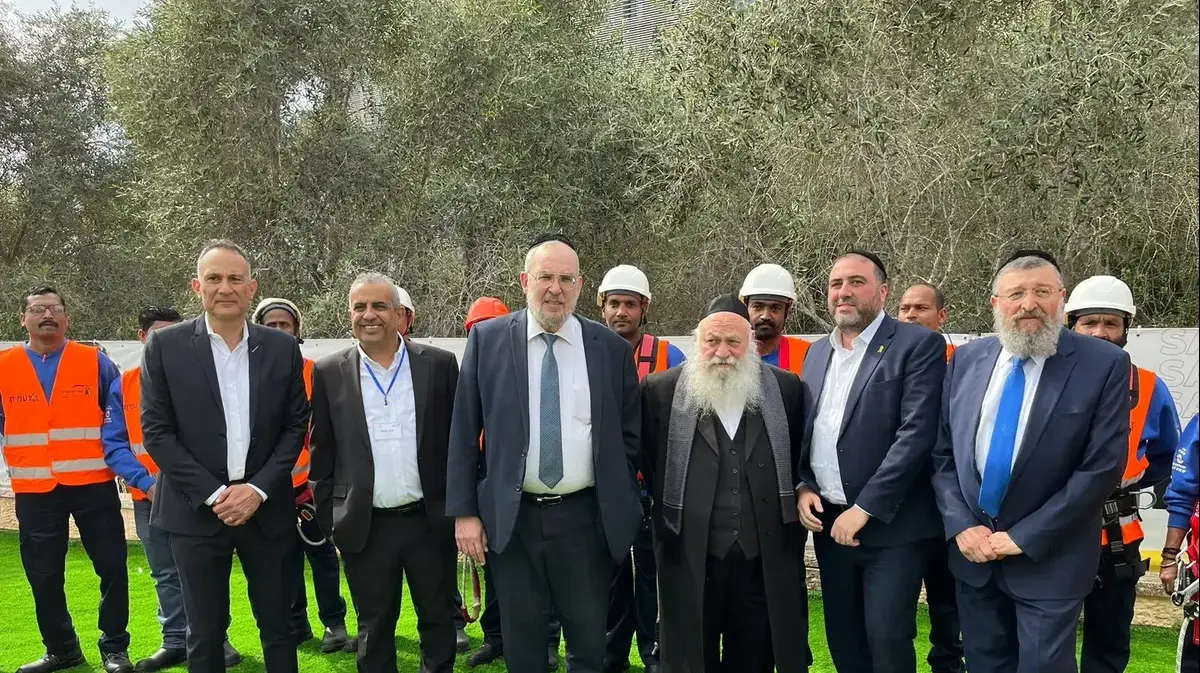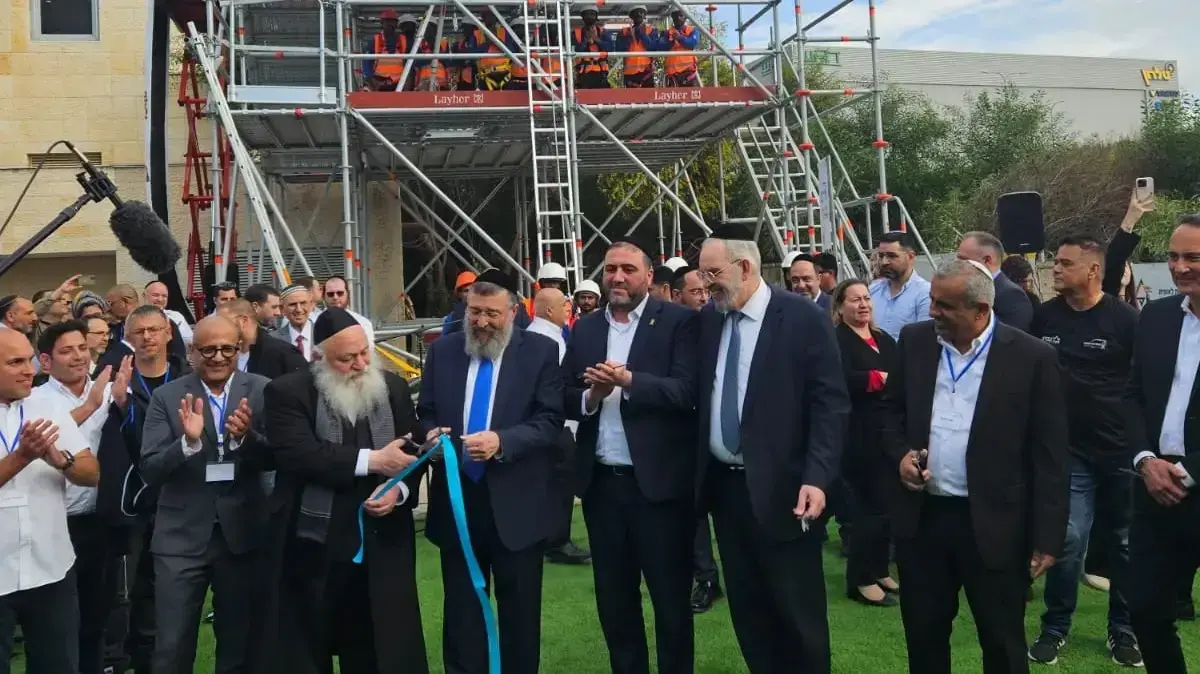Three of the most recent terrorist attacks have been carried out by illegal immigrants. Already at the end of March, after the attack in Bnei Brak, the renovation contractors warned the Minister of Internal Security, Amar Bar-Lev, about the intensification of the phenomenon of the Shin Bet in the country.
On the eve of the Corona epidemic, the number of IAFs in Israel stood at 20,000, but climbed to about 40,000 during most of 2021, and now stands at about 44,000 in the first quarter of the current year. Most of them are employed in construction, restaurants and agriculture. Not only security implications, but also heavy economic impacts.
Injury to the competition, Photo: Dudu Greenspan
"One of the reasons for the increase in numbers is the diversion of enforcement agencies to enforce corona restrictions," explains Dr. Hagai Etkes, a senior researcher at the Institute for National Security Studies, Tel Aviv University. " For several weeks without returning home.
Therefore, it would have been better for them to enter the line of praise, so that the restrictions would not apply to them. The corona policy would encourage Palestinian employers and workers to move to informal work.
"Some argue that the entry of Shabbat is good for Israel because they are working in construction and we are in a housing crisis, but the Shabbat is working for cash, and this is pushing the industry to work in the black. This is damage to the legitimate Israeli economy," he adds.
Loss of revenue to the state
A study conducted by Dr. Etkes with Prof. Wafak Adnan, a branch of New York University in Abu Dhabi, shows that the salary of illegal residents in 2021 amounted to at least NIS 1.9 billion.
The phenomenon of praise hurts employers who want to act legally.
"Although these workers do not reach the tax threshold, there is a loss of revenue from taxes to the state - from the profits of those contractors," says Etkes.
Locating praise at construction sites, Photo: Coco
In the study's conclusions, Etkes and Adnan wrote that a positive effect is expected to close the loopholes in the fence and tighten control over Palestinian employment.
"Reducing the entry of GSS will help Palestinian employers, who found it difficult to hire workers due to competition with Israelis, because if in Israel it is possible to earn NIS 9,000, then the PA earns about NIS 3,000 for a similar job."
However, the researchers warn that "reducing the number of visitors will hurt mainly unmarried young people, who are currently having difficulty obtaining a work permit.
The situation will increase the demand for the purchase of work permits through speculators, and therefore a reform will be needed that will reduce illegal trade.
It is advisable to examine whether 'married' status as a condition for obtaining a work permit does indeed help reduce the risk of terrorism. "
"There is a huge shortage of workers"
"Today's renovators find themselves competing with Shevach," says Eran Sib, chairman of the Association of Renovation Contractors.
"At least NIS 3,000 is paid for painting an apartment. A NIS can do the work for NIS 500 because it pays neither taxes nor income tax, nor social security nor labor insurance.
We can not compete with praise, it is an unfair competition. "
"Everyone is turning a blind eye to the breaches in the fence because they say there should be peace there, but the Shabbat is not only taking our jobs and livelihoods, but also killing us.
It's wierd.
"They break the law, steal livelihoods and human lives, but no one in the country does anything," Fiber said.
In the restaurant industry, on the other hand, it is said that since the approval of quotas by Palestinian workers in the field, the phenomenon of praise has become marginal.
"The issue of employing Palestinian workers is not managed by the state in an orderly and correct manner," says Shai Berman, director general of the Restaurant Association. "There is a huge shortage of workers in the country.
The state and the army have an interest in having workers come from the PA because it contributes to the army in terms of security peace.
On the other hand, the state is slow and stingy with these permits.
The amount of quotas is very small, which sometimes produces illegal employment.
After all, these are people hungry for bread, and they will go underground if need be.
That is why a secure mechanism needs to be created, so that their employment is legitimate and supervised. "
There are currently 2,000 Palestinian workers in the restaurant sector, after Interior Minister Ayelet Shaked increased the quota from 1,500.
"Once they can be legally employed - no one has a trigger to employ them illegally. So as long as there are enough quotas - the phenomenon remains on the margins."
Berman refers to the fact that these are usually workers who work in jobs that Israeli workers are not willing to work in - cleaning jobs and kitchen jobs.
"We have a shortage of workers in Israel, not just in restaurants - there is a 1.6% slowdown in the economy. If we want the economy to grow, we need more workers, Palestinians or foreign workers, so that we can continue to open our businesses."
Were we wrong?
Fixed!
If you found an error in the article, we'll be happy for you to share it with us









